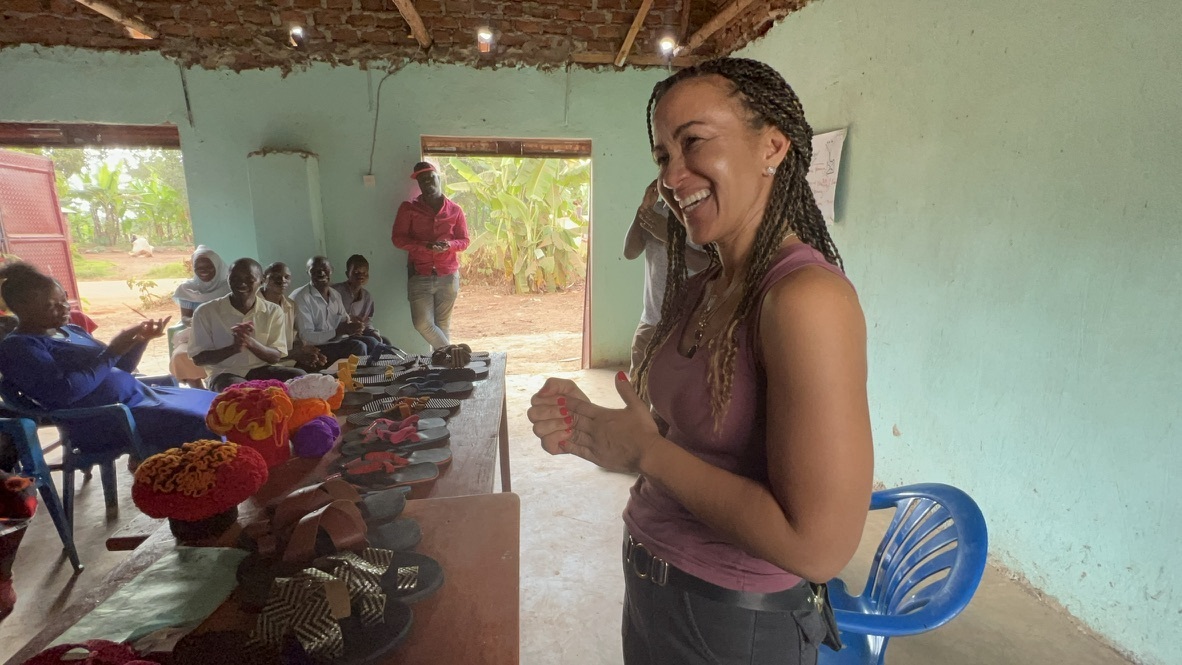Recently, there has been an ongoing debate regarding the objectives and impacts of charity. There are different forms of charity, but at its core, it refers to any act that aims to improve the well-being of individuals, albeit only for the short term. The most common form of charity is monetary donations. Although welcomed, charitable contributions do little to solve the causes of problems that they attempt to address. For instance, while a feeding program for people experiencing homelessness can sustain them for a day, this does not entirely solve the issue of food scarcity or homelessness. In essence, many charitable efforts fail to employ a holistic approach to discerning and assessing the roots of persisting world issues (e.g., poverty, injustice, inequity, etc.).
Dr. Danika Tynes, a strategic advisor and health systems professional of more than 20 years, recognized the gaps in institutions' efforts to solve societal problems, especially concerning innovation and development. She remarked, "I realized that we're not working for progress. We're at this point in the developed world wherein we're primarily working for efficiency.” Dr. Tynes, believing that access to wellness is a fundamental right and not a mere aspiration, champions sustainable access as the key to ensuring society's development and advancement.

Dr. Danika Tynes
Driven by her mission to create sustainable value and solutions that uplift the most vulnerable populations, Dr. Tynes founded the Sustainable Access Foundation (SAF) in 2022. Over 70% of entrepreneurs in developing countries have no access to loans, infrastructure, or digital tools. The non-profit organization provides funding and scaling strategies to communities in developing countries, starting in Uganda. Dr. Tynes' extensive experience in organizational change management (i.e., implementation of enterprise-wide electronic health records, consumer-directed care solutions, telehealth solutions, Medicaid systems, etc.) and passion for mindfulness and psychosocial well-being led her to pave a path toward ensuring that sustainable access is available to all.
Sustainable access, in this context, has three dimensions. Firstly, one must have access to being able to dream. Dr. Tynes noted, “In developed countries, we tend to take for granted having the ability to dream. There are a lot of people in this world who don’t even know how to imagine more of themselves than the circumstances and confines of what we were born into.” The global change leader shared how young people in emerging economies often only dream of working in low-skilled labor to survive. Yet, she believes each individual has a purpose and a value above mere survival.
The types of innovations the strategic advisor has seen in Uganda are nothing short of astonishing. However, there are numerous barriers, particularly geo-political concerns, that hinder the realization of these innovations. “Because many communities work within the confines of oppression, they get creative. The creativity that is found in communities that have to bob and weave around such confines ignites a level of innovation that we will need to carry us through the next hundred years. I witnessed young people make an ulcer cure out of a mound of dirt they monitor, set on fire, and transfer into liquid. These young entrepreneurs are limited due to their inaccessibility to market share, yet wouldn't the world be all the better off with access to a natural cure? We have these pockets in the world of brilliance, so what we do is work with these young, creative entrepreneurs to amplify their talents and voices for the benefit of their communities and ultimately the world,” Dr. Tynes emphasized. With this, the mentor realized the immense significance of approaching her work through open dialogue and engagement in stoking communities to dream and determine what their “access” or purpose in life is.
The second dimension of sustainable access is having access to the resources that will allow one to pursue their dream. “If you’re a soccer player in a rural village, and you've never been on a soccer team before, how will you grow as a player? What we do in SAF is help open doors that enable building upon a dream,” the founder of SAF explained.
Meanwhile, the last dimension of sustainable access pertains to individuals obtaining access by themselves. Dr. Tynes added, “How we help communities move forward is different for every community. Some will see change by providing changemakers with the necessary tools and techniques. Some need the support they simply haven't received before, whether that be a simple conversation around the dining table, working through tough business decisions, or thinking through the next innovative idea.”
Ultimately, the global change leader made it her life mission to provide driven entrepreneurs the tools needed to uplift not only themselves but their entire community and realize limitless potential through mentorship, investment, and partnership. Not simply in the here and now but creating a future where emerging communities no longer need to rely on charity. Now, these communities will be able to rely on their own innovations and build legacies that will last for generations.
Media Contact
Name: Dr. Danika Tynes
Email: [email protected]






